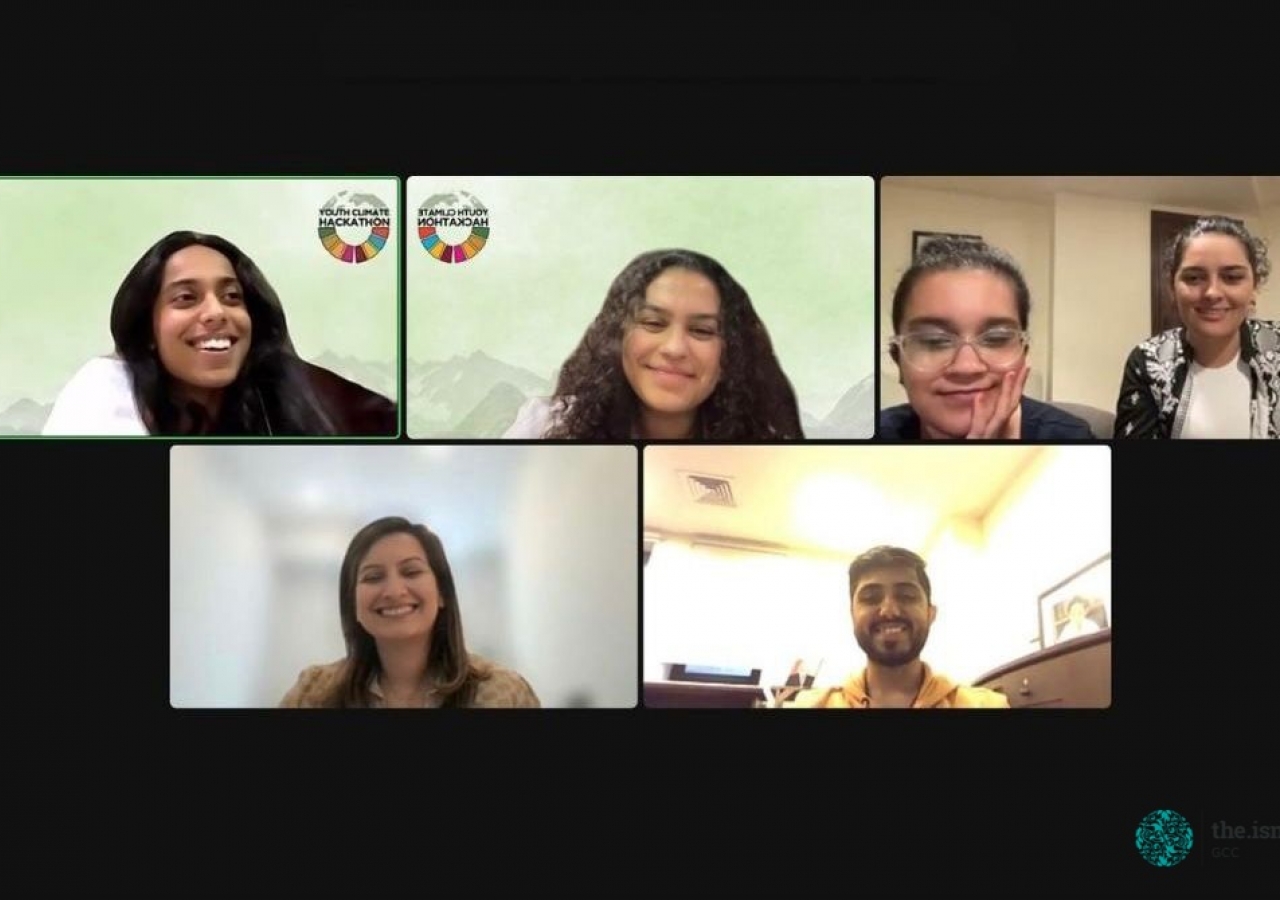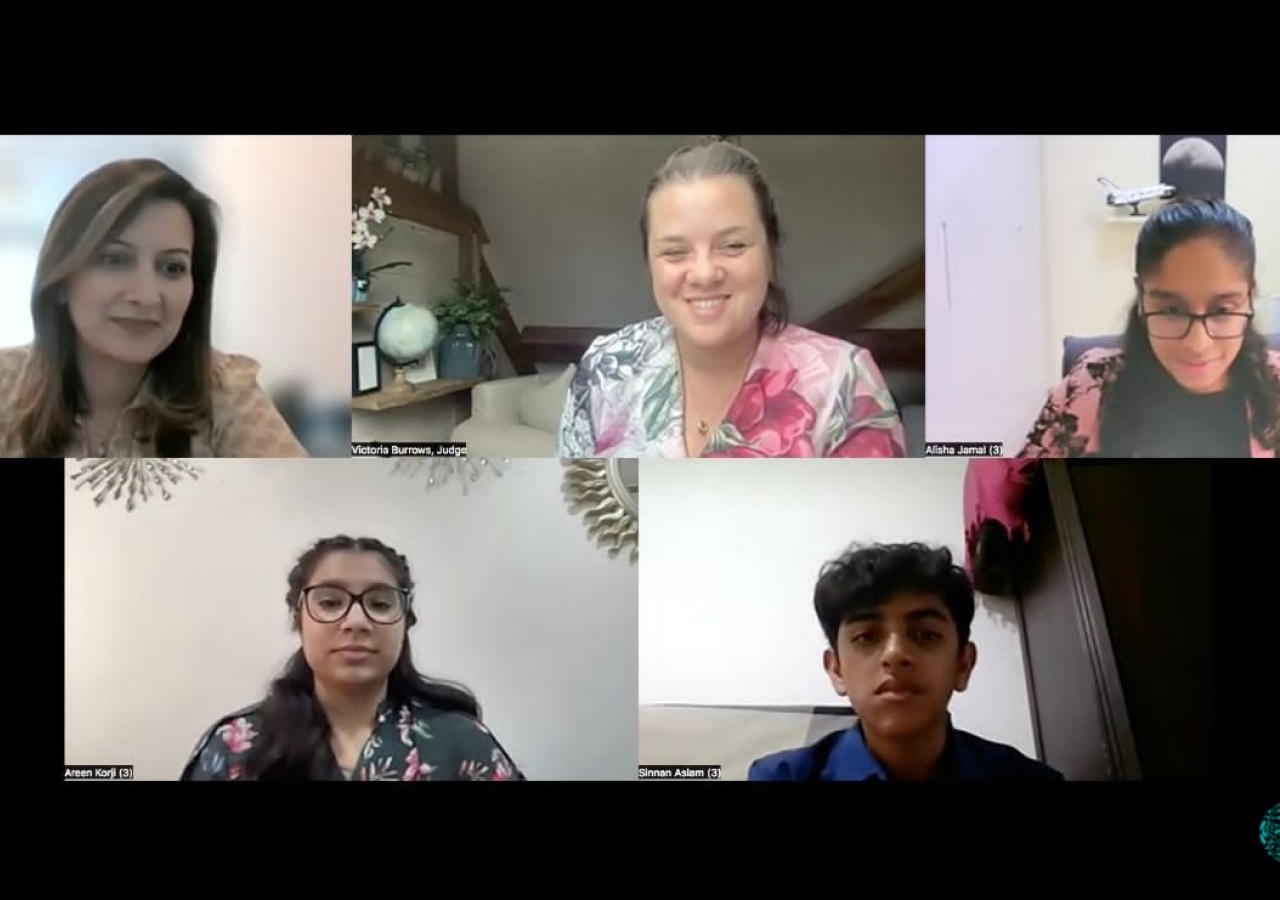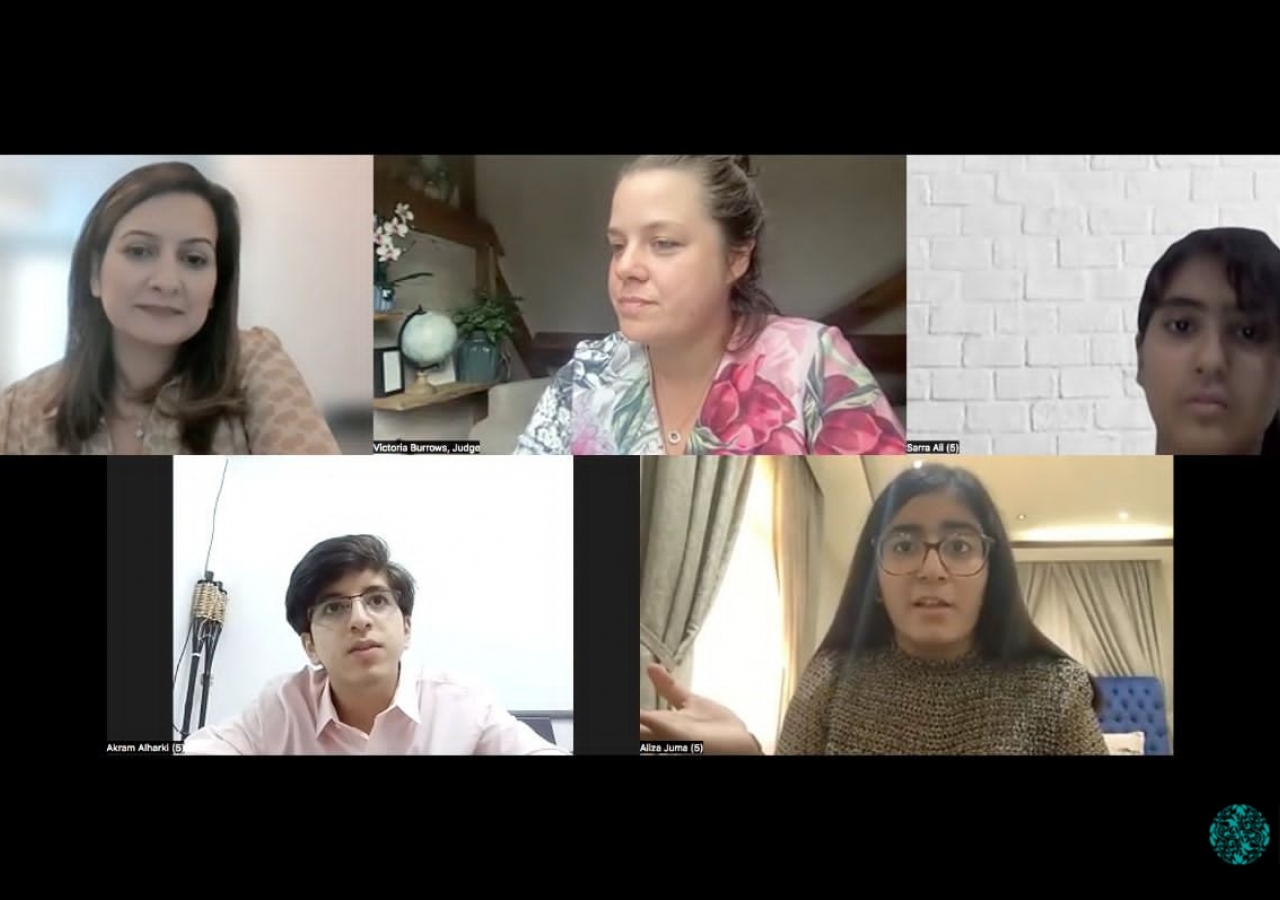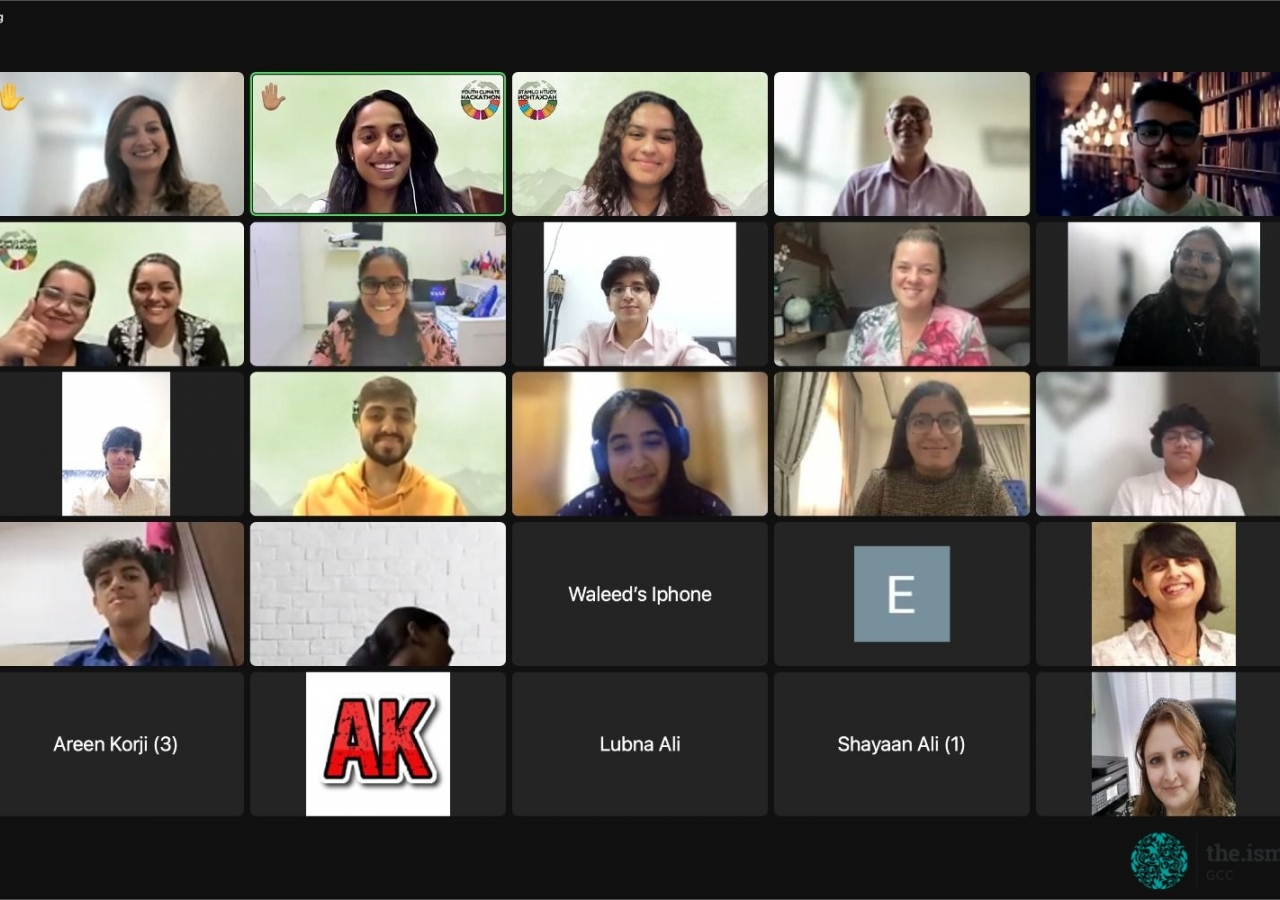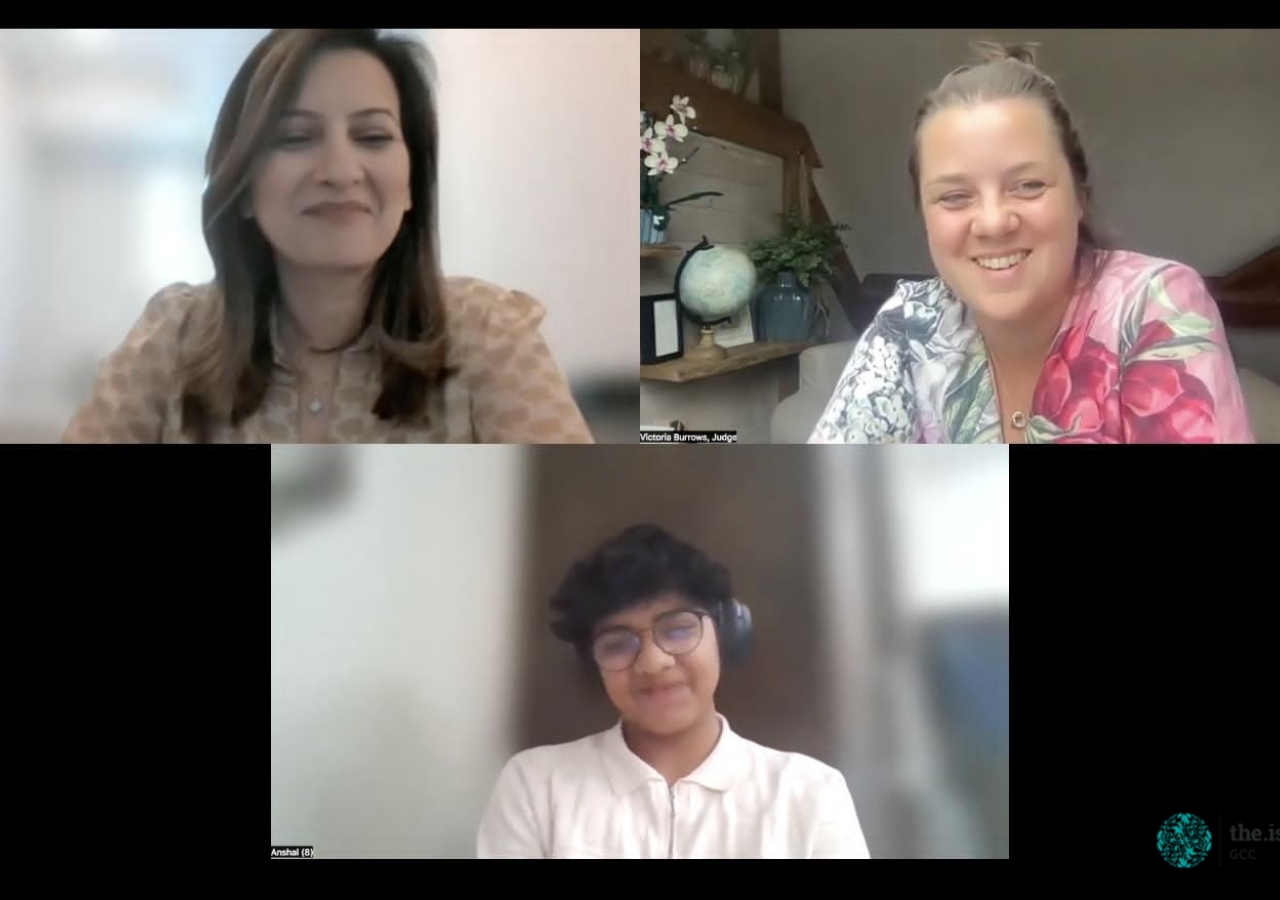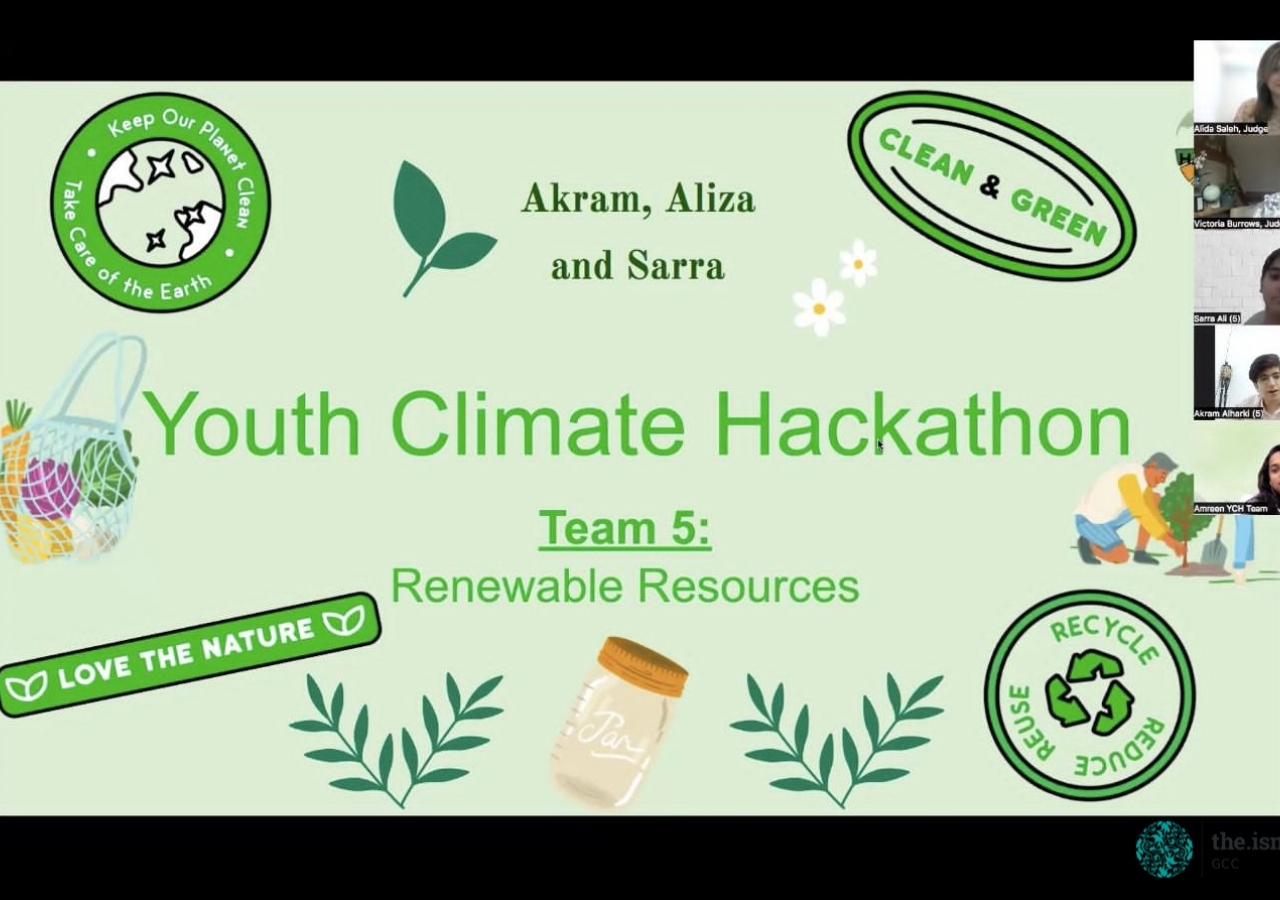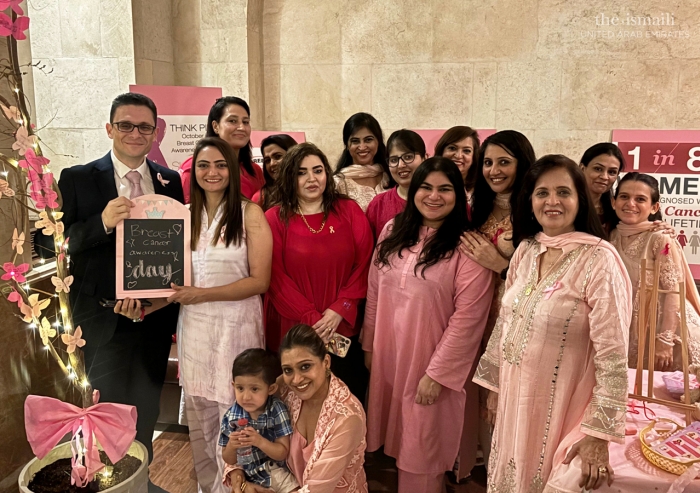As Dubai gears up to host the 2023 Climate Change Conference of Parties (COP28), the 28th session of the United Nations Climate Change Conference, the Aga Khan Education Board for the United Arab Emirates launched the first ever Regional Youth Climate Hackathon in June of this year.
A team of passionate young leaders came together to organise the hackathon for Community members aged between 13-18 years to participate in. Participants collaborated with their peers from across the region to ideate innovative solutions, tackle real-life climate challenges and discover their inner climate champion.
Participants worked in teams within their age bracket, led by a facilitator. Each team chose climate issues related to one or more of the following defined challenge categories for which to develop solutions:
YCHHackathon02122027
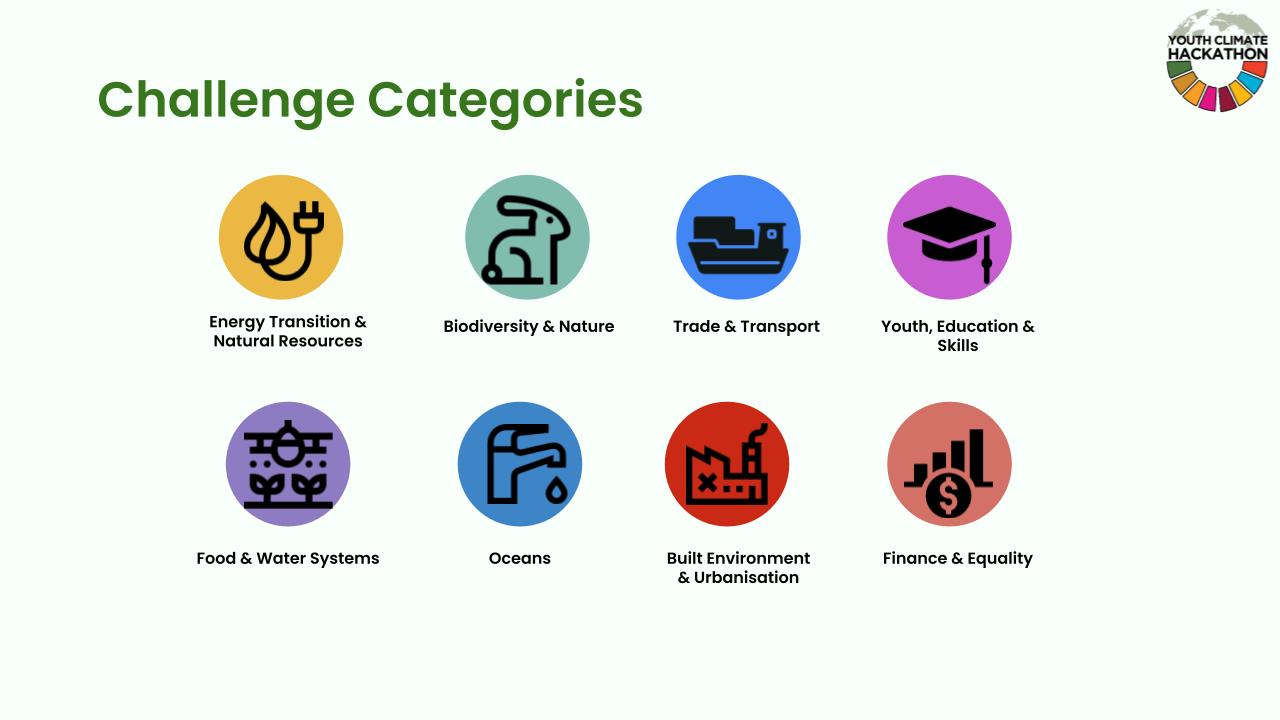
The group also attended workshops led by industry experts and trained facilitators to learn about the latest trends and practices in the climate space, the current climate crisis and their role as empowered change makers.
“This journey has been a catalyst for transformative change. Those intense days of brainstorming, collaborating, and innovating with like-minded individuals ignited a compelling passion, a belief that even as a young advocate, I can promote positive environmental change in my community… We stand ready to reshape our world into a sustainable and harmonious future,” stated one of the participants, Alisha Jamal.
The hackathon concluded with presentations on solutions from each team to a panel of judges. The winning team was team BioUrbia consisting of Alisha Jamal, Areen Korji, Shayaan Maredia, and Sinnan Aslam.
Solutions presented included the following ideas:
A Climate Vulnerability Index (CVI) to gauge the vulnerability of climate change on less-socio economically stable groups, and to apportion funding to them accordingly through a scoring system. The CVI would be designed and developed through research and expert opinion, to better understand the vulnerability of a country’s population. The funds would be mobilized to mitigate this risk and develop infrastructure, energy resources and achieve other sustainability goals.
Solar panels designed with unique features to provide energy to low-income countries, using cost-efficient and easily accessible materials for household use. In low-income countries, limited access to efficient energy sources impacts well-being, hindering access to vital human needs such as healthcare, education, and clean water, leading to a stalling of economic growth.
BioUrbia, an all-encompassing agency that unites diverse disciplines, experts, and stakeholders under one banner. BioUrpia is an idea for an initiative which incorporates numerous solutions to enable a Biodiverse City. At its core, the approach is to combat the multifaceted challenges of climate change through a fusion of biomimicry, artificial intelligence, and data analytics.
A gadget attached to household plants that would increase the understanding of the air quality through monitoring and recording the carbon dioxide (CO2) in the surrounding air, as well as the amount of the CO2 absorbed by the plant and converted into oxygen. The gadget is also helpful to collect data for research purposes.
A software infrastructure that incentivises recycling to local, and international food and beverage (F&B) businesses. Recycled materials will be measured digitally using real-time data centric bins. This will provide accreditation to sustainable businesses who adopt this model, with sustainable badges, distinguishing them from the conventional, harmful manner businesses currently operate.
As we wait to witness the longer-term outcomes of this years’ hackathon, we can take pride in the growth and awareness of all the participants as expressed by Areen Korji: “Hackathon has helped me evolve. I have become cautious when using water and electricity, and I have reduced my wastage. This experience improved my skills, it pushed me out of my comfort zone, and boosted my confidence, and adaptability in dealing with time pressure.“
To find out more about education board events please write to: [email protected]

